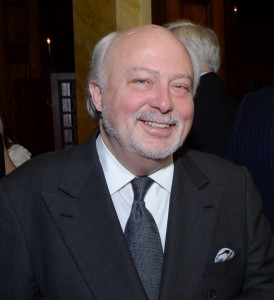5/31/12: by Robbin Laird
I was saddened to learn of the passing of Joe Fitchett. It is not just a loss of a friend and dialogue partner on the evolution of Europe, but the true passing of an era.
Joe was in many ways the representative of a passing era.

Joe was part of that tradition of American journalists based in Europe that provided insight into the big world for American readers.
Insights not provided by simple prejudice but actual analysis and working the networks.
Joe started with the International Herald Tribune in the late 70’s and worked there into the early 21st century.
But for me, Joe represented an anchor point to understanding the 1980s, and the 1990s, in Europe, in U.S.-European relations, and the world.
For my children, it will be difficult to understand really how unique this period was.
I was a frequent visitor to Paris and Europe in the 1980s and 1990s and often sat down with Joe to talk about what we thought was going on, what might go on, and what did not go on.
We broke bread, shared thoughts and puzzled over events.
That quality of Joe’s – to puzzle rather than to jump to conclusions – was a key attribute that anchored our relationship.
There was much to puzzle over.
In the 1980s, I was working extensively on European and Soviet security issues and wrote many books and articles in this period. Joe read my stuff; I read his.
And we often discussed evolving stories, and I gave him my best shot at providing insights and folks he might add to his rolodex and he gave me his.
We started by puzzling over the anomalies of the Mitterrand Administration. This started from the beginning of the Administration, a pure socialist play to tax the rich, not show planes at air shows with weapons and other such political theater.
We next saw Mitterrand move to provide support for the Euromissile efforts of the Reagan Administration. Then the Mitterrand Administration split over the question of support for the Star Wars initiative.
In the middle of all of this, the Soviets – being Soviets – actively sought to penetrate and influence the Mitterrand Administration. In the midst of this was the famous Farwell Affair in which the U.S. and France shared data on what a Russian mole brought to the French government. This was sort of the KGB version of Karla’s mole, but in reverse.
Then there was the dynamics of creating a unified Germany, a process in which if there was not a President Bush, there would not have been a unified Germany created the way it was. Mitterrand opposed German unification and that became its own dialogue point between the Americans and Mitterrand.
Then after Germany unification, we have the Clinton Administration, and its vision of the expansion of Europe – by the way a vision which now leaves in its wake the Euro crisis, Iran, Turkey and many other issues.
Then came the Bosnian crisis, the war, and the unique period of relations between Clinton and Chirac.
Through all of this, the opportunity to talk to Joe and reflect jointly on this puzzling period was central to my own ability to understand.
These talks are almost an unwritten time capsule to a recent period of history which is defining to our current period.
Unfortunately, I can not talk to Joe about that any more.
God Bless Joe and many thanks for being my friend.
For the last piece of work I did – with and for Joe – see
Typically, Joe was one of the few people to get this and to request it.
Credit Featured Image: Bigstock

